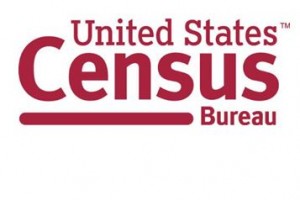 WASHINGTON — The U.S. Census Bureau today announced 10 new members to serve on the Census Bureau’s National Advisory Committee on Racial, Ethnic and Other Populations.
WASHINGTON — The U.S. Census Bureau today announced 10 new members to serve on the Census Bureau’s National Advisory Committee on Racial, Ethnic and Other Populations.
The National Advisory Committee advises the Census Bureau on a wide range of variables that affect the cost, accuracy and implementation of the Census Bureau’s programs and surveys, including the once-a-decade census. The committee, which is comprised of 32 members from multiple disciplines, advises the Census Bureau on topics such as housing, children, youth, poverty, privacy, race and ethnicity, as well as lesbian, gay, bisexual, transgender and other populations.
“The expertise of this committee will help us meet emerging challenges the Census Bureau faces in producing statistics about our diverse nation,” Census Bureau Director John H. Thompson said. “By helping us better understand a variety of issues that affect statistical measurement, this committee will help ensure that the Census Bureau continues to provide relevant and timely statistics used by federal, state and local governments as well as business and industry in an increasingly technologically oriented society.”
The 10 new members are:
Gilberto Amaya, a specialist in international development who has served in senior management positions or senior consultant at various international development organizations including the Pan-American Development Foundation, Enterprise Works Worldwide and Appropriate Technology International, the World Bank and the IDB.
Cassandra D. Caldwell, the global leader for diversity, inclusion and community for GE Transportation. She earned a doctor of philosophy degree in human and community resource development from Ohio State University and is an adjunct faculty member at Cornell University and the University of Maryland.
Julie A. Dowling, an associate professor in the Department of Latina/Latino Studies at the University of Illinois, Urbana-Champaign. Her research interests include race and ethnicity, Latino/a identities, racial attitudes, interracial unions and multiracial populations, immigration, residential segregation, gender and sexuality. Dowling’s recent book, “Mexican Americans and the Question of Race,” explores Mexican-American responses to the census race question.
Jacob James Fitisemanu, the outreach coordinator for the Utah Department of Health Office of Health Disparities. As chair of the Utah Pacific Islander Health Coalition, board member of the Mana Academy charter school and a program specialist for the Queen Center organization, he is actively engaged in the Pacific Islander community.
Morad Ghorban, director of government affairs and policy at the Public Affairs Alliance of Iranian Americans, based in Washington, D.C. He has a bachelor’s degree in political science from Tulane University and a master’s degree in international studies and diplomacy from the University of London.
David Devraj Kumar, a professor of science education in the College of Education at Florida Atlantic University. He is one of the outstanding science education scholars of Asian American descent and a respected member of the Asian Indian community in Florida.
Yolande Marlow, Ph.D., executive director of the Supreme Court Committee on Minority Concerns and the manager of the Minority Concerns Unit in the Office of Communications and Community Relations at the New Jersey Administrative Office of the Courts.
Meghan Maury, federal policy counsel for the National Gay and Lesbian Task Force in Washington, D.C. She has devoted a significant portion of her work time to raising the importance of sexual orientation and gender identity data collection.
Stuart Michaels, a senior research scientist at the Academic Research Centers at NORC at the University of Chicago is associated with both the Ogburn-Stouffer Center for the Study of Social Organization and the Population Research Center in Chicago. He has extensive experience in the design and analysis of surveys of sexuality dating to the late 1980s.
Lily Anne Yumi Welty Tamai, the curator of history at the Japanese American National Museum who is in the final months of a postdoctoral fellowship in critical mixed-race studies at the University of Southern California. She has a doctorate of philosophy in history from the University of California, Santa Barbara. She is a former Fulbright Scholar and Ford Foundation Fellow.
Paul Watanabe, the director of the Institute for Asian American Studies at the University of Massachusetts, Boston — is the National Advisory Committee’s chair. Kirsten Martin — assistant professor at the George Washington University School of Business Administration, — is the vice chair. The committee members, who serve at the discretion of the Census Bureau director, are chosen to serve based on expertise and knowledge of the cultural patterns, issues and/or statistical needs of traditionally “hard-to-count” populations.











